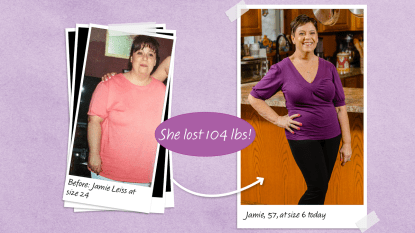5 Natural Remedies to Lower Your Cholesterol This Winter

Keeping troublesome blood fats called triglycerides (TG) in a healthy range (below 150 mg/dL) has always been smart, as it’s proven to cut heart disease and stroke risk in half. Now, George Washington University scientists have found that taming high triglycerides also cuts the risk of severe Covid-19 complications by 73 percent. And it’s easy!
Enjoy more cozy couch time.
Evening temperatures are dropping and the sun is setting earlier, which makes this the perfect time to relax on the couch with a movie or new show. And enjoying “downtime” for just 30 minutes a day could trim 30 points off your TG level in six weeks. That’s the word from Spanish investigators, who found that reducing your stress hormone levels helps heal your liver, reducing its TG production.
Sprinkle cinnamon.
The warm spice adds deliciousness to oatmeal, muffins, and hot cocoa. And because cinnamon breaks down triglycerides so they don’t build up in the bloodstream, adding one teaspoon to your daily diet lowers TG levels by 27 percent within 20 days, USDA scientists say.
Add the sunshine supplement.
You can trim up to 60 points off your triglycerides by keeping your blood level of vitamin D-3 (the sunshine supplement) steady year-round, say Cornell scientists. The nutrient helps cells burn blood glucose for fuel before the liver can convert them into triglycerides. The study-proven dose: 2,000 IU daily.
Water your houseplants.
Moving for two minutes each hour, like grabbing the mail or watering houseplants, reduces your TG level by 15 points in one week, suggests research in Lipids in Health and Disease. Study co-author Gina Crichton, PhD says frequent bursts of activity stimulate muscles to soak up and burn TG for fuel.
Opt for this pizza topper.
Next time you order a pie, top it with canned sardines (the ones packed in tomato sauce are pizza-perfect!). Spanish studies suggest eating two cans of these tiny, omega-3–rich fish weekly helps lower TG by 30 points in one month.
A version of this article originally appeared in our print magazine, Woman’s World.













